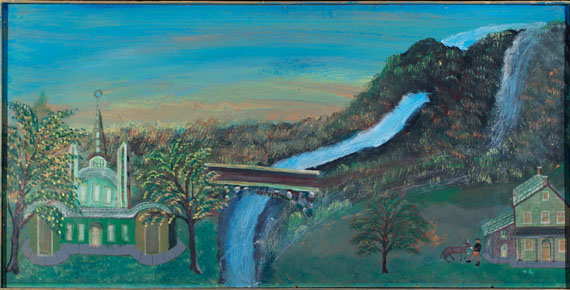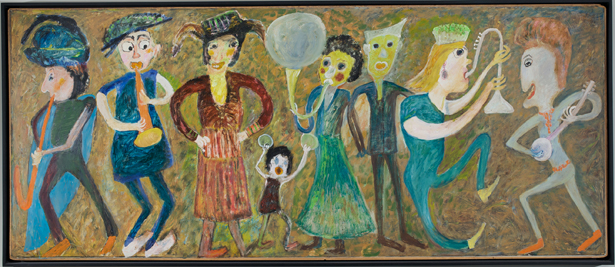
- home
- education
- science
- Minds-on Activities for Teaching Biology
- Next Generation Science Standards
- Remote Ready Biology Activities
- NGSS Biology Activities
- Hands-On Activities for Teaching Biology
- Teaching Climate Change
- Science Education
- Summer Institutes for K-12 Teachers 1995-2010
- Brain & Behavior
- Biology
- Science & Culture
- Complex Systems
- digital humanities
- play
- one world
 © Serendip® 1994 - All rights reserved. Privacy Policy
© Serendip® 1994 - All rights reserved. Privacy Policy

"It's only a role...."
So much here...I'm having lots of trouble inserting order in the multiple different trajectories/ideas your writing is generating for me...suggesting that I need another form than the linear essaylets we've been writing...
so...I will experiment, this time round, w/ the form of the bullet point (point by point, except not following your original order), illustrated w/ images of the outsider art now on display @ the Philadelphia Art Museum (about which I will also write elsewhere...just a way of flagging our unwieldy this page is getting!)
* "when I say we, I mean, naturally, other men"--> and when you say we, you clearly don't mean me, or all the other women who will be in our class. So, to flag this keynote again--> I want to think/learn/explore more about the experience of women in the city; have just checked out Daphne Spain's How Women Saved the City, which I don't think--w/ its focus on the creation of "redemptive spaces" like boarding houses, vocational schools, settlements houses, public baths, playgrounds--is going to get quite @ what I'm aiming....but maybe. There's something here about creating a built environment in which newcomers can learn to become urbanites...Hm...and so: maybe not so different, after all, from pissing on trees to mark one's territory? We'll see; I'll report back if this line of pursuit uncovers anything interesting-or-useful (or gender-specific or non-specific?)

* speaking of which: I like your refusal of the "easy dyad" between "fixed meaning" and "unfettered flow," and also of any "easy dyad" between city and nature (trees planted in parks to approximate nature, cities planted inbetween rivers as playful, ecocentric attempts to order that space...); what we'll be looking @ throughout this course, as you say, is the back-and-forth between the impulse to order and the urge to tweak it. I'm wondering if there's a cultural specificity we also need to attend to, here. I've just begun Gish Jen's little collection of essays, Tiger Writing: Art, Culture, and the Interdependent Self, which both puts into play and unsettles the easy dyad between "the independent, individualistic self that dominates in the West..and the interdependent, collectivist self that dominates in the East." This is relevant because we're likely to have a number of Chinese students in our class, relevant because, as Jen says,


"I am struck very year by how consistently President Drew Faust's addresses to Harvard freshmen emphasize free exploration and playfulness--an emphasis appropriate to a stable, egalitarian, individualistic society. And one can easily see that ... the Chinese template...is wildly at odds with Western ideas about art...It is, rather, far closer to the kind of piano 'training' described in Amy Chua's Battle Hymn of the Tiger Mother...the traditional Chinese template...was geared toward attaining safety and social standing in a dangerous, interdependent, hierarchical world....."
* which is to say (for our purposes) what are the conditions necessary to play? How stable does the world have to be before one can begin to re-invent-and-reimagine it? Or (to the turn the query around): to what degree does a stable world incessantly-and-inevitably provoke play? Here's the final story Jen tells, of her father @ the point of retirement from the City College of New York:
"'I notice all the students are waving at you so happily. Why is that? What is going on?' To which my father replied...'Because I gave them all A's'--an answer that surprised...since my father was, as you might imagine, a famously tough grader.....It was for him a way of ...saying, I'm taking my hat off now, and you know, it was just a hat...a very interdependent view, related...to humor, and gamesmanship, and role-playing; it's as if he were saying, it's important to know your role, but it's important to know, too, that it's ony a role...."
So: maybe this little book would be a good opening text for us: not about the city, but a model of a cross-cultural intellectual autobiography, that looks (among other things) @ the question of what enables playfulness....